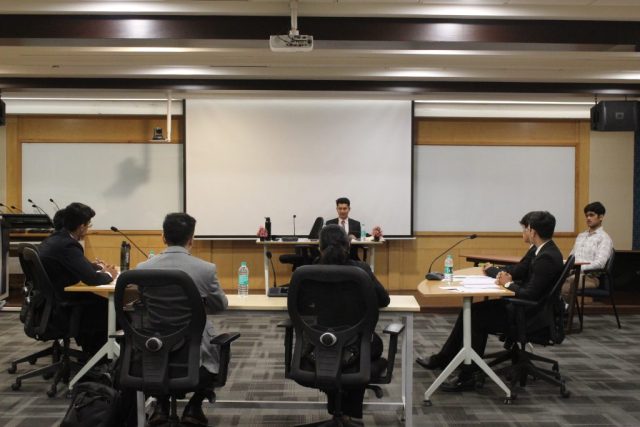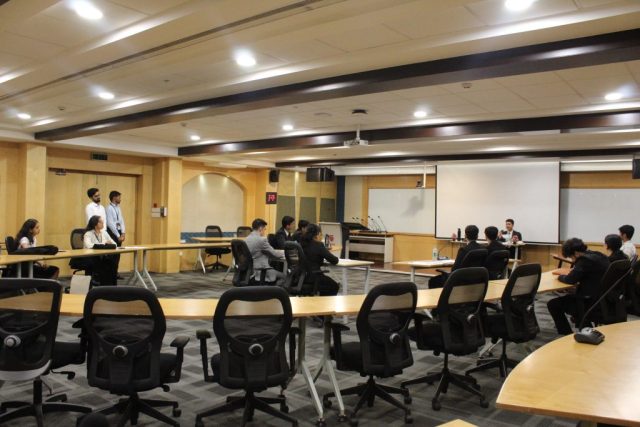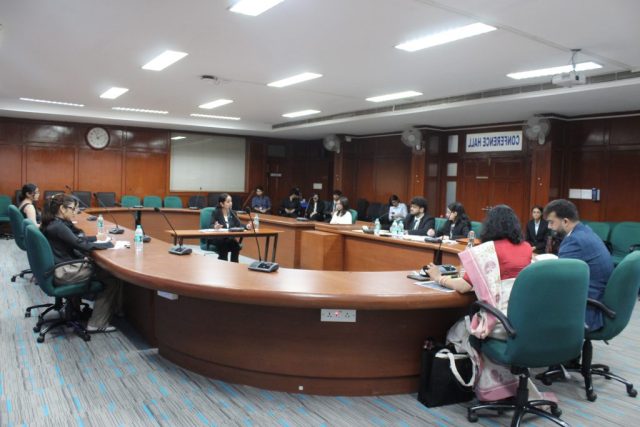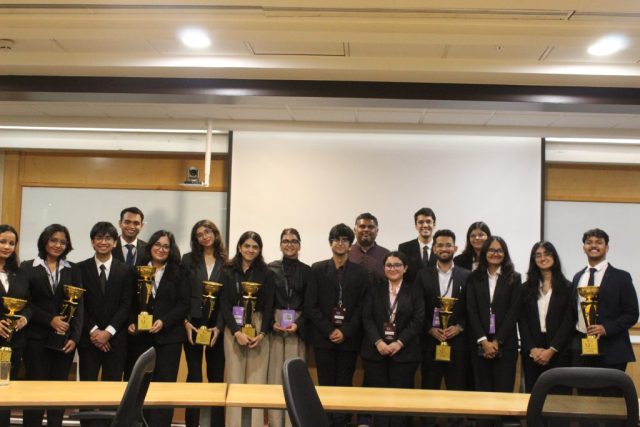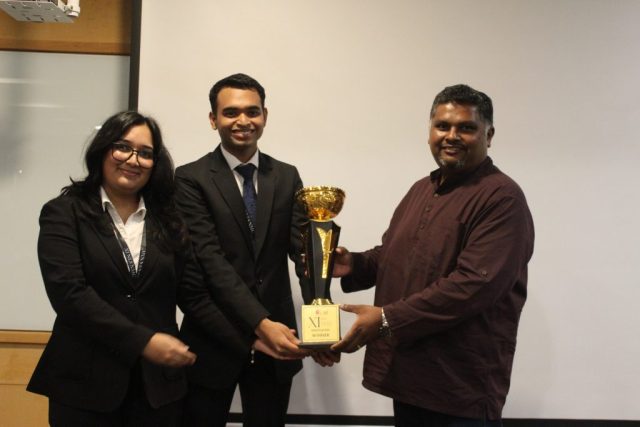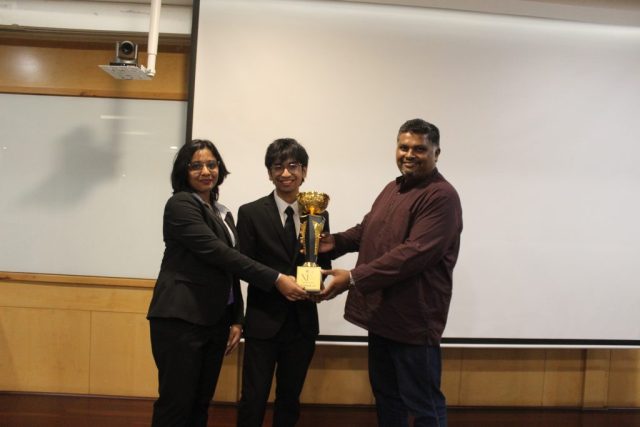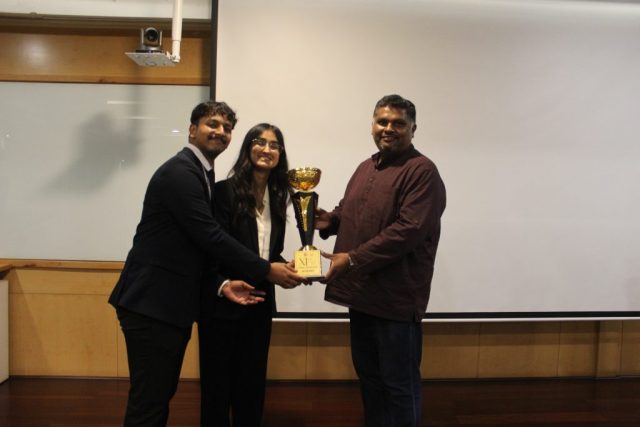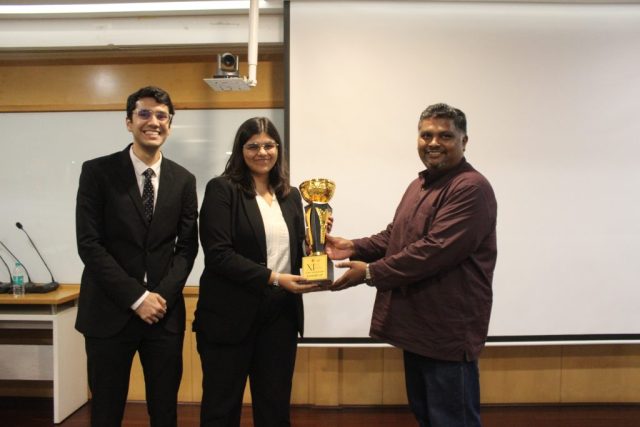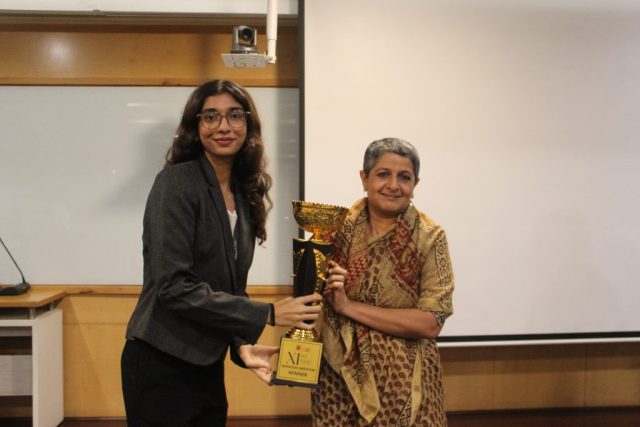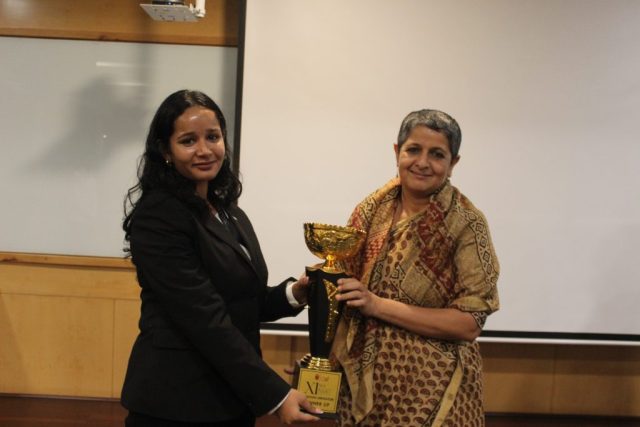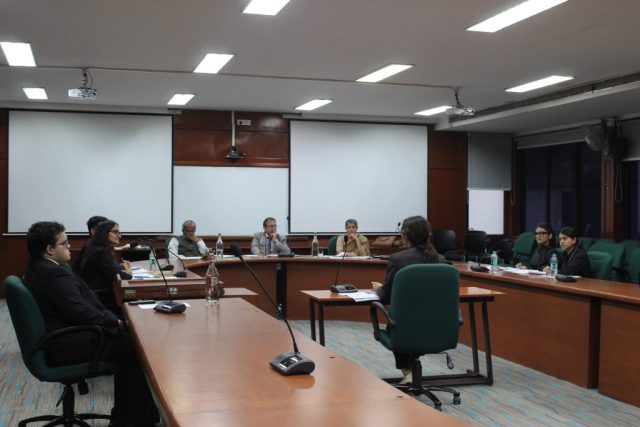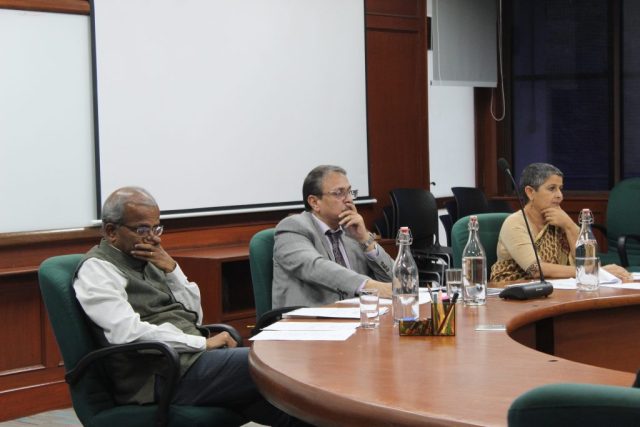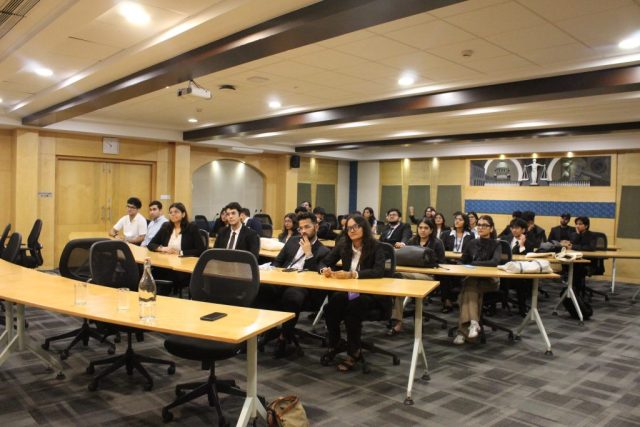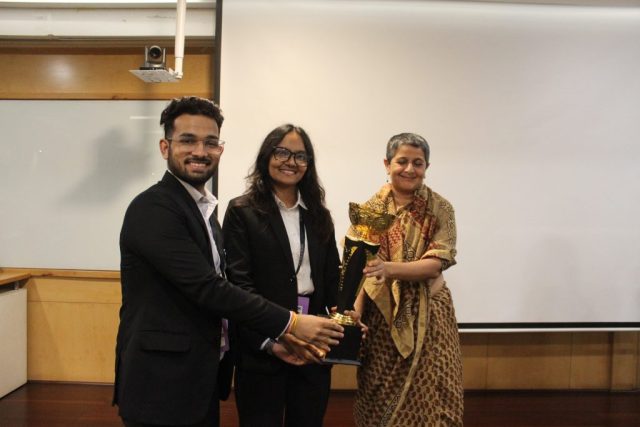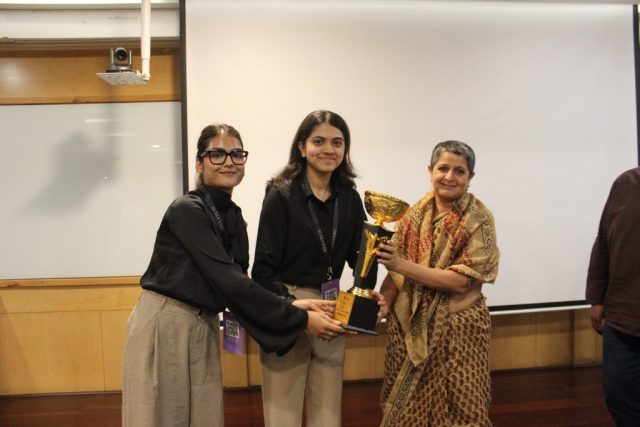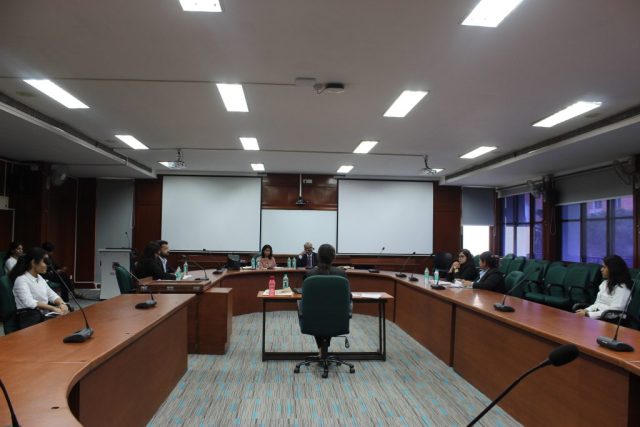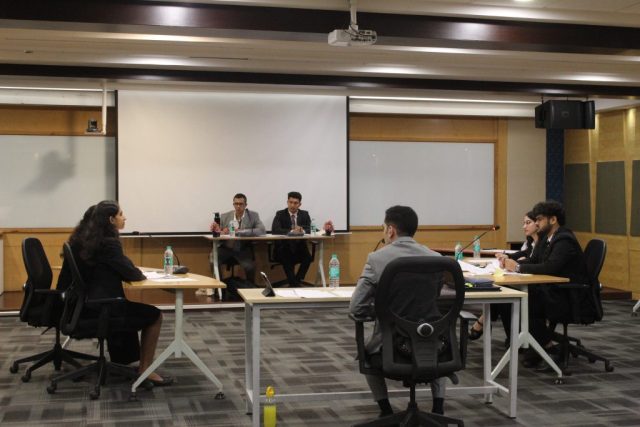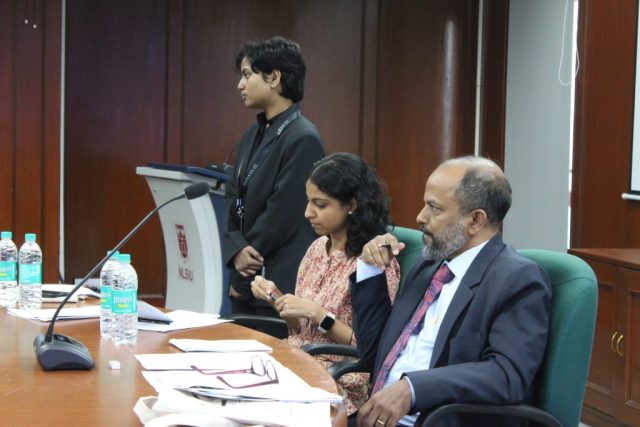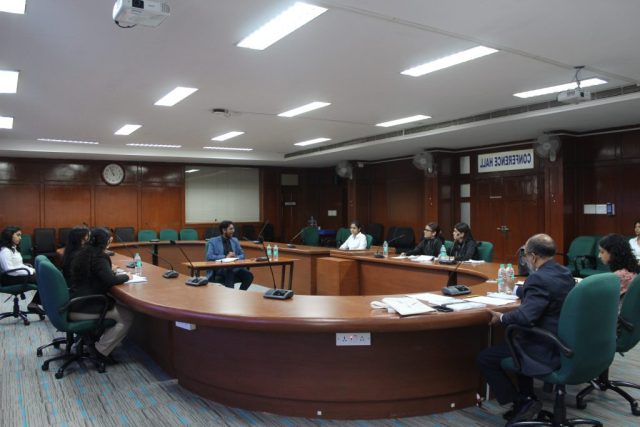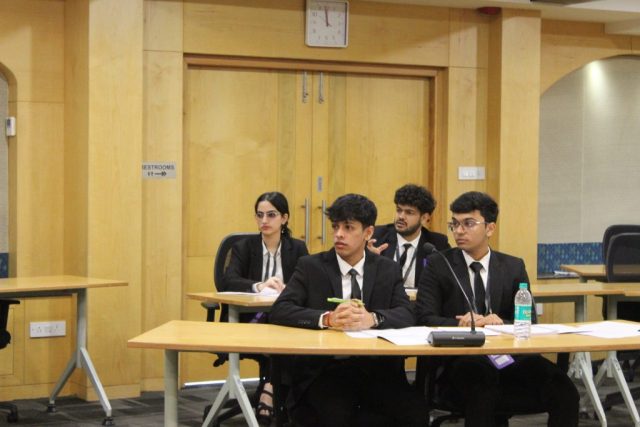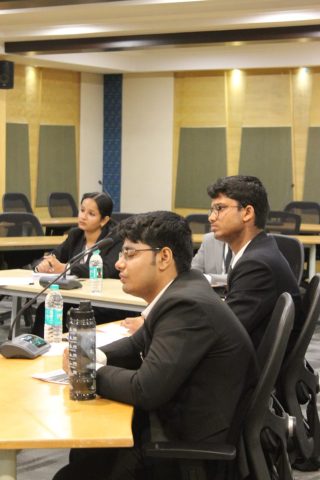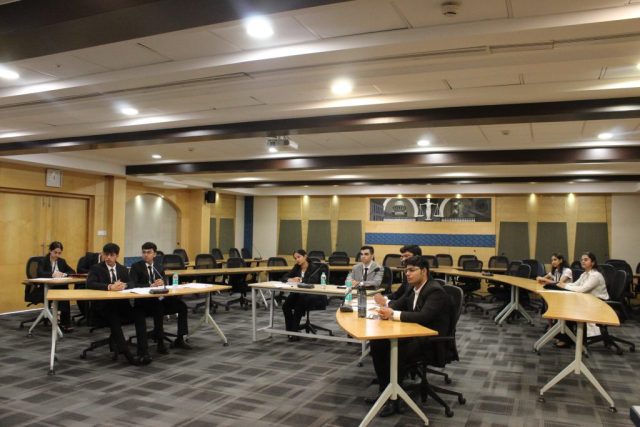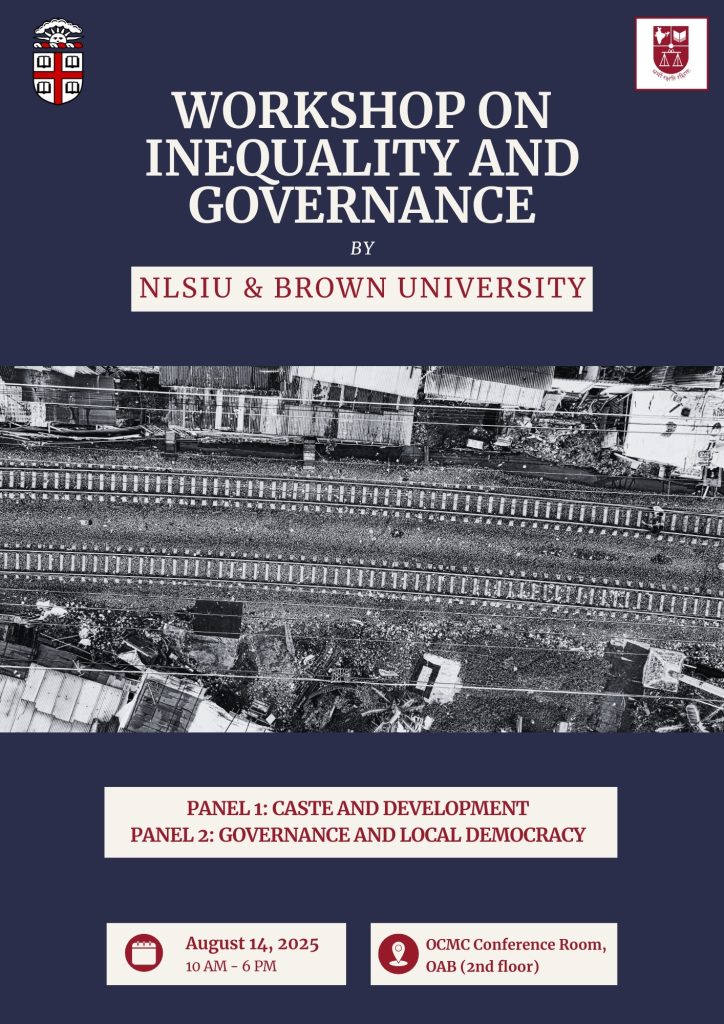 The Centre for the Study of Social Inclusion at NLSIU, in collaboration with Brown University, is hosting a workshop on ‘Inequality and Governance’ on August 14, 2025.
The Centre for the Study of Social Inclusion at NLSIU, in collaboration with Brown University, is hosting a workshop on ‘Inequality and Governance’ on August 14, 2025.
About the Workshop
This one day workshop will bring together a group scholars working on themes of inequality, development and governance to share ongoing research at various stages. These could be research proposals, article drafts and chapters from a book project. The workshop is being organised around two panels with four papers and a discussant assigned to each. Each presenter will have up to 20 minutes to present their work. This will be followed by 15 minutes for comments from the discussant and Q&A from other participants. In the final session, there will be a discussion on next steps for putting together a series of such workshops over the next two years, ideas for publications and other ideas for institutional collaborations.
Caste and Development
The articulation of caste has played a critical role in shaping the development trajectory of modern and contemporary India. Far from being a static remnant of a premodern social order, caste is now increasingly recognised as a dynamic and enduring structure that interacts with, and often underpins, key aspects of India’s political economy. It is pertinent to note that caste should not be viewed as antithetical to capitalist modernity or the functioning of modern market economies. Rather, it remains a salient force that intersects with class, labour, and institutional arrangements in complex and historically contingent ways.
Recent scholarship has significantly expanded the understanding of caste beyond its conventional framing within discourses of exclusion, discrimination, protest, and social reform. Contemporary studies have begun to examine caste as an active agent in India’s development experience—shaping and being shaped by processes such as capitalist modernisation, the expansion of welfare schemes, and the evolution of democratic governance. These works demonstrate how caste structures mediate access to state resources, economic mobility, and public representation, thereby influencing patterns of inclusion and inequality in the context of development. Moreover, this body of research situates caste within the broader historical frameworks of colonial rule and postcolonial state formation, analysing how institutional arrangements—from colonial bureaucracies to constitutional mandates—have both challenged and reinforced caste hierarchies. It also brings to light the ways in which caste continues to inform labour relations, patterns of employment, and market participation, particularly in informal and agrarian economies.
By reorienting the study of caste toward its entanglements with development, capitalism, and institutional governance, these contributions offer a more comprehensive and empirically grounded account of how social stratification persists and transforms in contemporary India. This expanded analytical approach enables a deeper understanding of how caste operates not simply as a cultural or social identity, but as a key axis of political economy and governance.
The workshop invites papers that explore the enduring influence of caste in shaping the trajectory of development and social policy in contemporary India. It especially encourages papers focussed on empirically grounded studies, which examines how caste operates across rural and urban contexts, development programmes, and state interventions and across sectors such as education, health, employment, land, and welfare.
Governance and Local Democracy
Over the past three decades, India has undergone profound transformations in its governance architecture, marked by significant attempts at democratic deepening, social policy expansion, and reconfiguring of centre-state dynamics. This panel explores the evolving landscape of governance and democracy in India through the lens of decentralisation, fiscal federalism, and rights-based development, while grappling with contemporary challenges such as climate change and socioeconomic inequality.
The decentralisation reforms of the 1990s sought to institutionalise grassroots democracy through the Panchayati Raj system and urban local bodies. However their outcomes remain uneven, shaped by varying state capacities, elite capture, and the complexities of federal governance. The rights-based social policies of the early 2000s directed significant funds and functionaries downwards, introduced new platforms for citizen oversight and grievance redress and have been accompanied by expanding financial inclusion infrastructure and large-scale digitalisation. This has increased the institutional presence of the local state and state-citizen interactions in myriad new ways. Fiscal federalism has played a central role in mediating these transformations, especially as demands on state and local governments have increased in the context of decentralisation and welfare delivery. The evolving role of institutions such as the Finance Commission and centrally sponsored schemes reflects ongoing tensions over resource sharing, autonomy, and accountability between the Centre and states. These challenges are further compounded by the climate crisis, which demands coordinated but locally embedded responses.
The papers in this panel study how complex interplays of routine and exception emerge amidst the institutional reforms and expanding terrain of formal entitlements alongside persistent inequalities and thriving informal structures of mediation. The papers will address the governance challenges and encounters between the state and citizens through the lens of a specific social policy or set of policies or a cross-cutting institutional reform. Papers are also encouraged to pay particular attention to how governance structures respond to both social and ecological vulnerabilities. This panel invites papers that examine linkages between institutional reform and democratic deepening. How did decentralisation alter political competition and the exercise of citizenship at the local level? To what extent did fiscal federalism enable states and local governments to adapt social policy to local needs? Did rights-based social policies reinforce or bypass local democratic institutions? What is the evolving role of local governments in an era of increasing centralisation and digital governance
Faculty Co-organisers
Agenda
Panel 1: Caste and Development | 10:15 AM to 1 PM
- Paper title: ‘Old Problem in a New Place: Redlining of Ex-Untouchable Ghettos’
Presenter: Dr. Jusmeet Sihra, University of Cambridge
Discussant: Dr. Sushmita Pati, NLSIU
- Paper title: ‘Music as Political: Rethinking anti-caste politics through a cultural interface’
Presenter: Dr. K Kalyani, Azim Premji University
Discussant: Dr. Karthikeyan Damodaran, NLSIU
- Paper title: ‘Entrepreneurship and marginalised social identities in India’
Presenter: Dr. Angarika Rakshit, NLSIU
Discussant: Dr. Aniket Nandan, NLSIU
- Paper title: ‘Caste and Development: Tracking Dalit social mobility within the realm of Dravidian social justice’
Presenter: Dr. Karthikeyen Damodaran, NLSIU
Discussant: Dr. Swati Narayan, NLSIU
Panel 2: Governance and Local Democracy | 3 PM to 5 PM
- Paper title: ‘The Political Economy of Federalism: Regional inequality and fiscal transfers in India’
Presenter: Dr. A Kalaiyarasan, Madras Institute of Development Studies
Discussant: Dr. Srikrishna Ayyangar, NLSIU
- Paper title: ‘Planetary Temporalities: Framing ‘Urgency’ in Disaster Management’
Presenter: Dr. Sudheesh RC, NLSIU
Discussant: Dr. Anindita Adhikari, NLSIU
- Paper title: ‘Forest rights, displacement and political economy of development: A qualitative analysis of relocated tribals from Satpura Tiger Reserve’
Presenter: Dr. Shiuli Vanaja, NLSIU
Discussant: Radhika Chitkara, NSLIU
- Paper title: ‘Learning to Lead: The uneven advance of power-sharing in the panchayat’
Presenter: Dr. Anisha George, Azim Premji University
Discussant: Prof. Patrick Heller, Brown University
Reflections
Dr. Jusmeet Sihra, University of Cambridge
“I want to thank NLSIU, and especially Anindita and Aniket, for providing this platform and for their very warm hospitality! I spent two extremely stimulating days there and learnt so much on inequality across its various dimensions and how to govern it. I clearly see myself coming again at NLSIU in the near-future to interact more in detail with colleagues.
These intellectual interactions are quintessential for producing new, cutting-edge scholarship. Without such exchanges, we simply cannot thrive in academia. The possibilities for future collaboration are many now in various forms and formats such as panels in international conferences, edited volumes, special issues, and individual collaborations.”
Dr. K Kalyani, Azim Premji University
“I feel the workshop was well organized with an interesting set of interdisciplinary conversations that was facilitated. It was nice to have conversations with NLS faculties as well as with invited guests to meditate upon the diverse aspects of caste studies. Looking forward, I see this cohort growing facilitating more conversations. I appreciate the organisers’ time and effort to conduct this.”
Dr. Karthikeyan Damodaran, NLSIU
“The workshop was a great effort bringing in scholars who work on related themes but not confined to a particular discipline as the participants were from different disciplines. Another important aspect is that, most of them were from geographically closer regions, this provides the possibility of having such collaborations in the future too to read each other’s work, give valuable comments, suggestions and exchange ideas. It was also nice to have a veteran sociologist in the form of Patrick Heller who was very participative and approachable.”
Dr. Swati Narayan, NLSIU
“It was a wonderful exchange of ideas and hope it ignites the spark for many more.”
Related Event
Panel Discussion | Report on ‘Citizenship, Inequality and Urban Governance: A Study of Indian Cities’
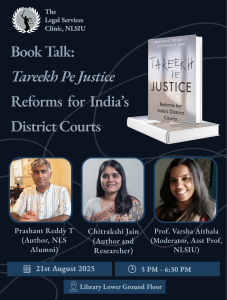 The Legal Services Clinic is organising a book talk on ‘Tareekh Pe Justice: Reforms for India’s District Courts‘ with authors Prashant Reddy T (NLS BA LLB 2008) and Chitrakshi Jain (Author and Researcher). The session will be moderated by Varsha Aithala, Assistant Professor of Law, NLSIU.
The Legal Services Clinic is organising a book talk on ‘Tareekh Pe Justice: Reforms for India’s District Courts‘ with authors Prashant Reddy T (NLS BA LLB 2008) and Chitrakshi Jain (Author and Researcher). The session will be moderated by Varsha Aithala, Assistant Professor of Law, NLSIU.

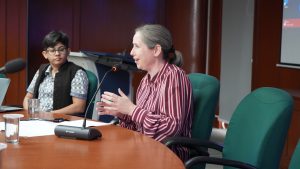 In this week’s faculty seminar,
In this week’s faculty seminar, 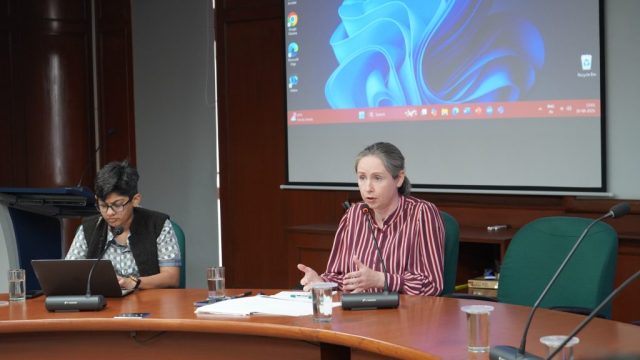
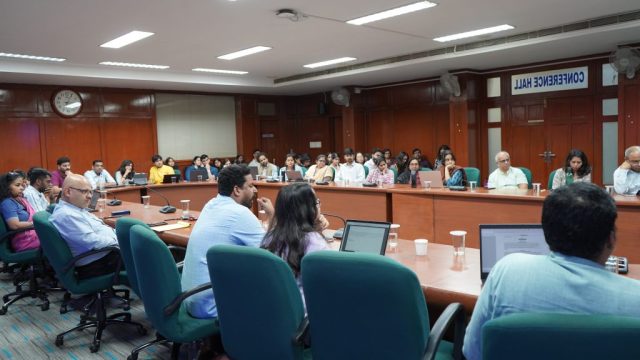
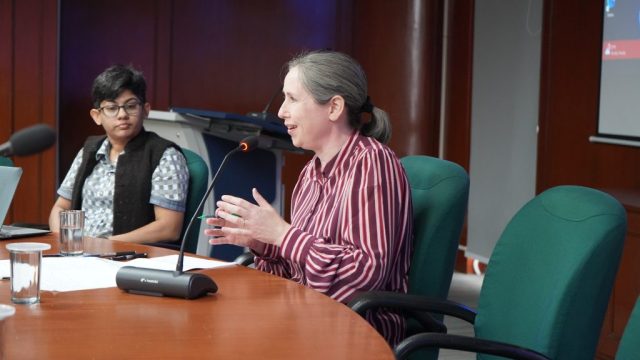
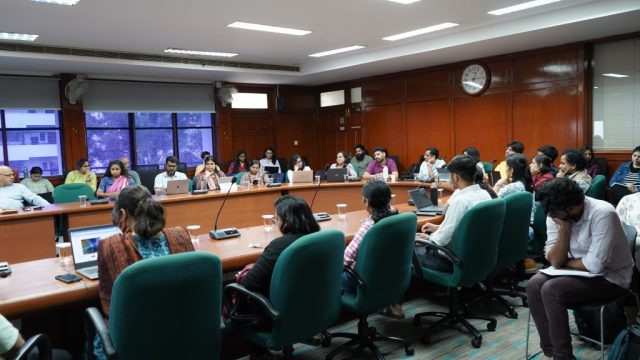
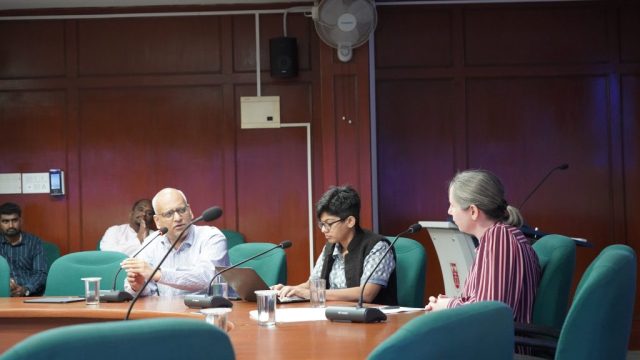
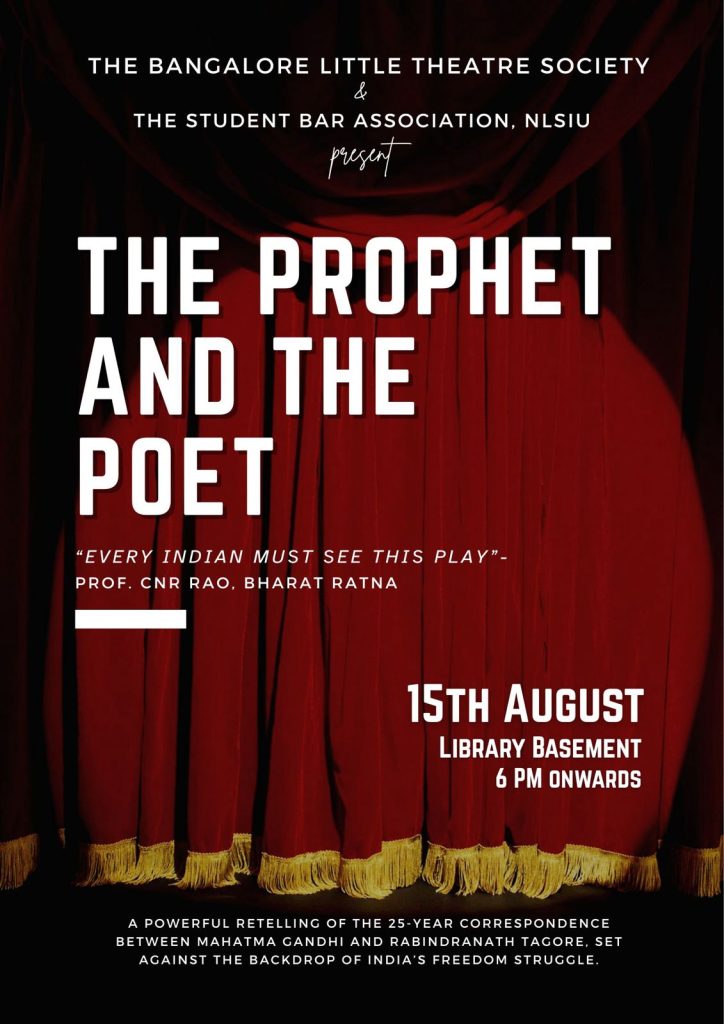 We are delighted to announce that
We are delighted to announce that  The
The 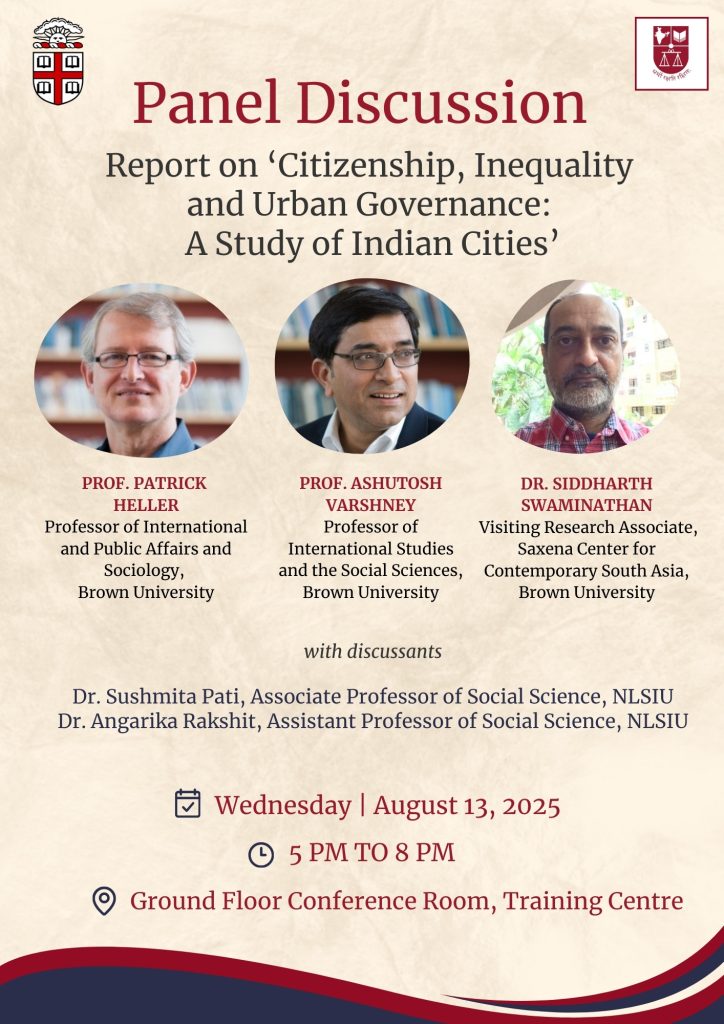 NLSIU hosted a panel discussion with Prof. Patrick Heller, Prof. Ashutosh Varshney and Dr. Siddharth Swaminathan from Brown University, United States, in which they presented the findings from their latest report titled ‘
NLSIU hosted a panel discussion with Prof. Patrick Heller, Prof. Ashutosh Varshney and Dr. Siddharth Swaminathan from Brown University, United States, in which they presented the findings from their latest report titled ‘
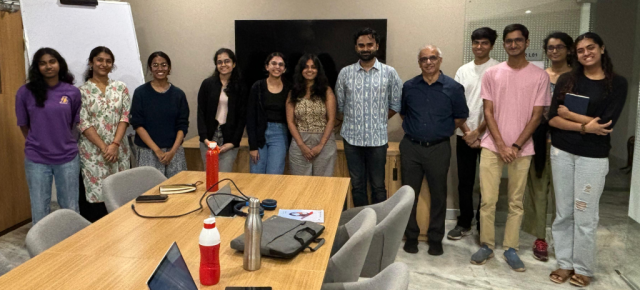
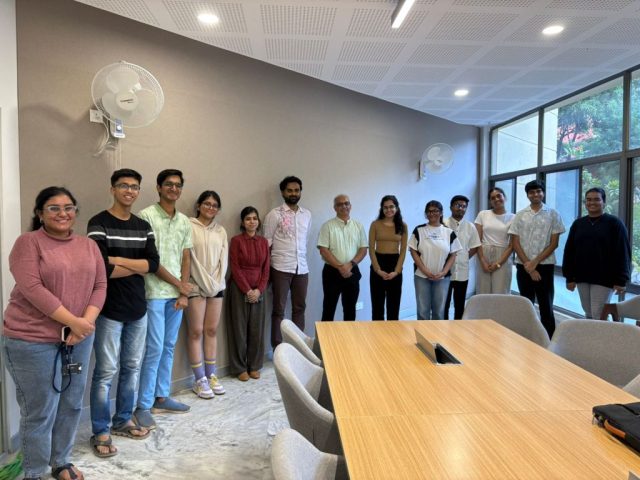
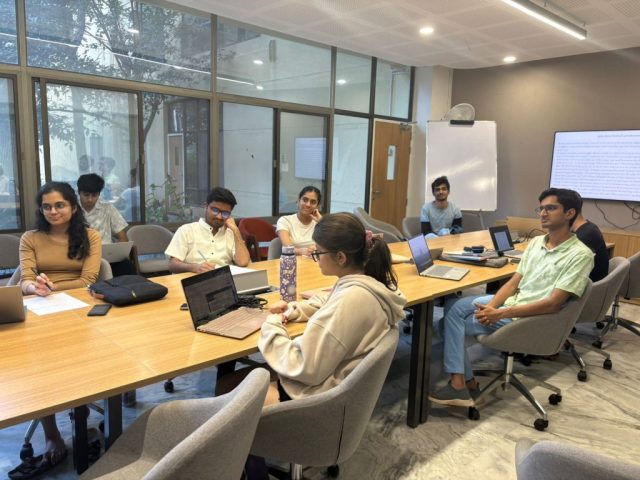
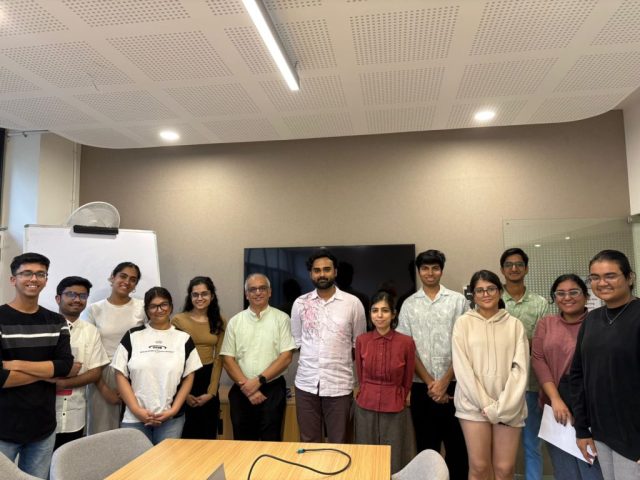
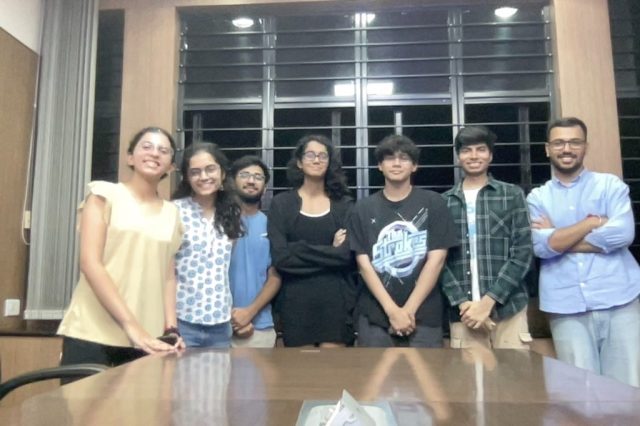
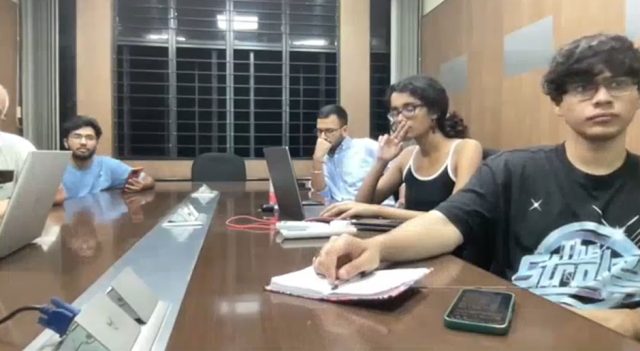
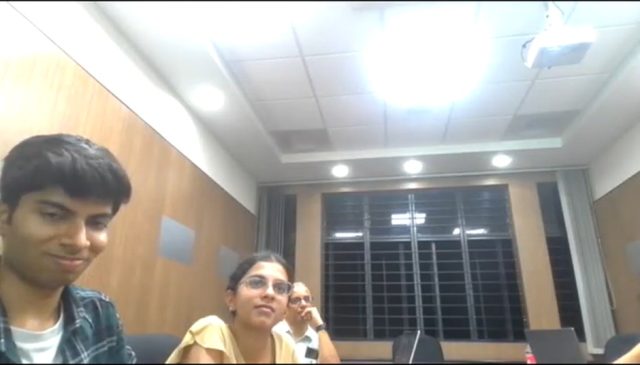
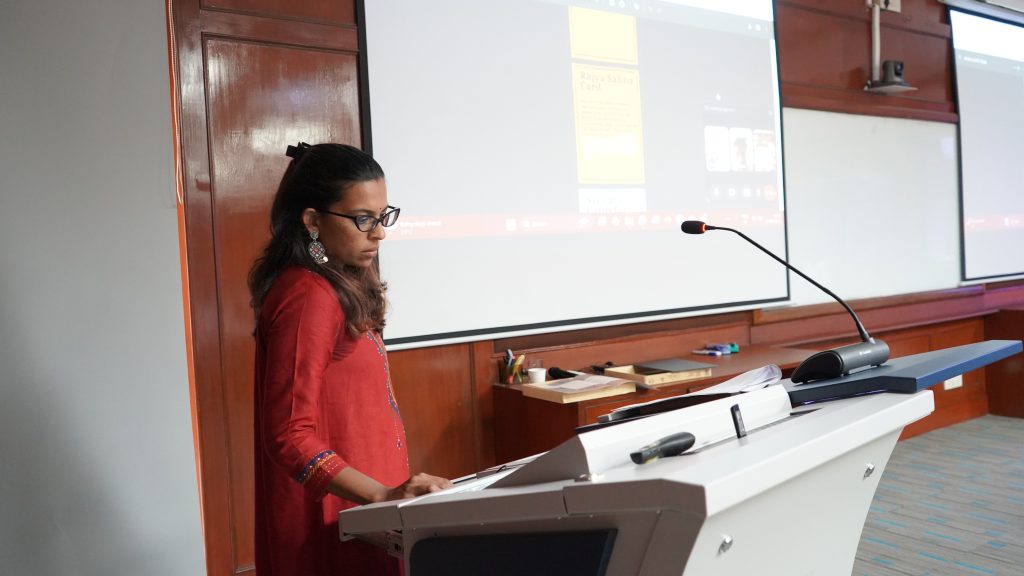 In this week’s faculty seminar
In this week’s faculty seminar 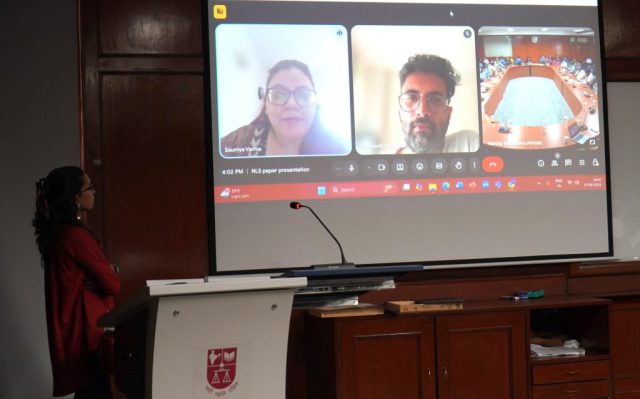
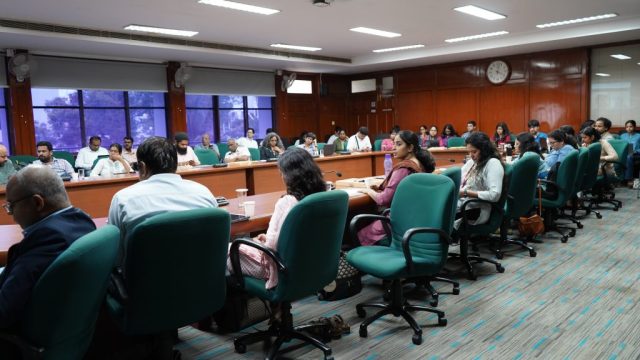
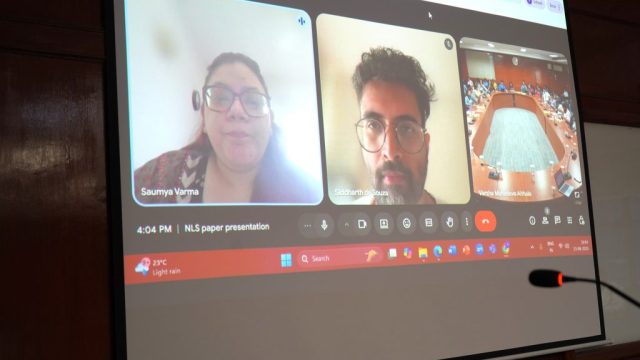
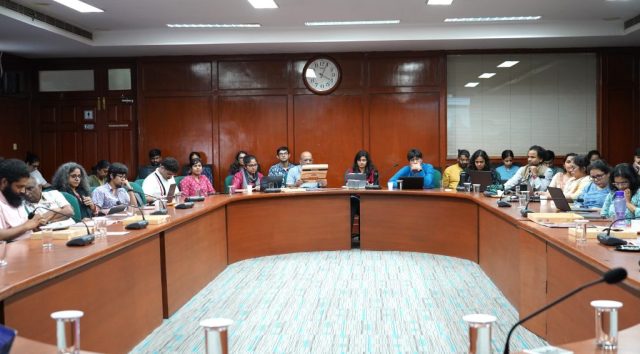
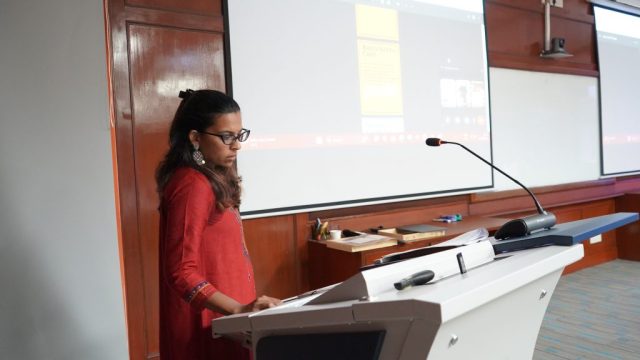
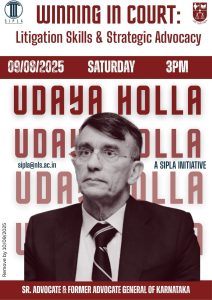 The
The 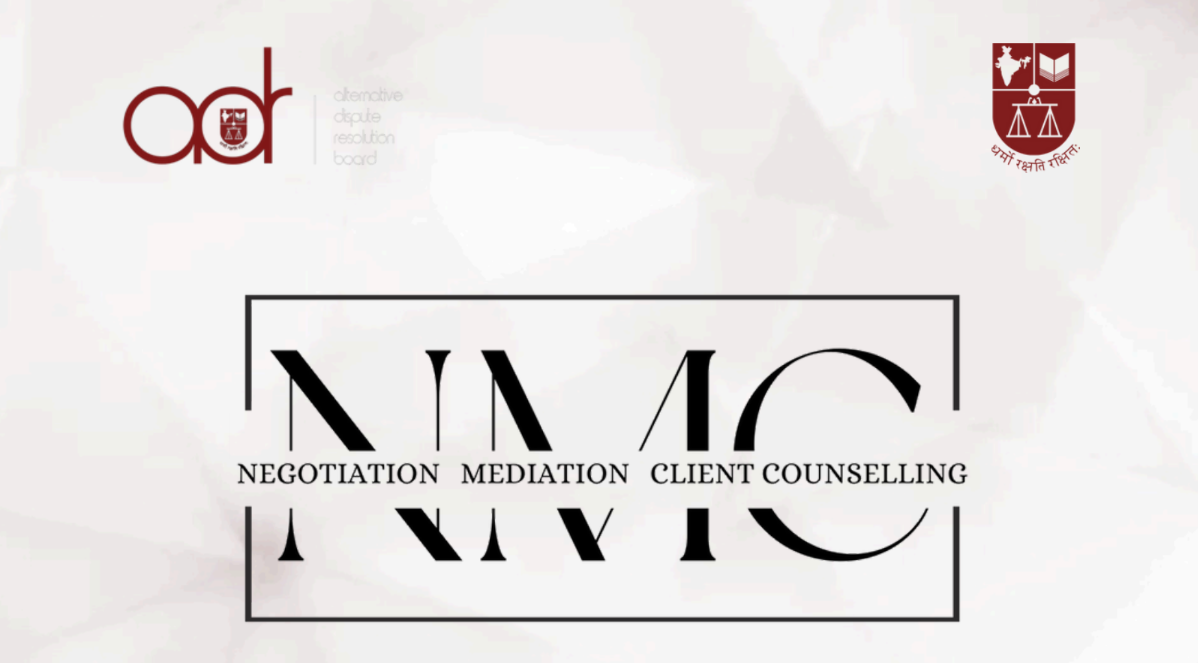 The
The 